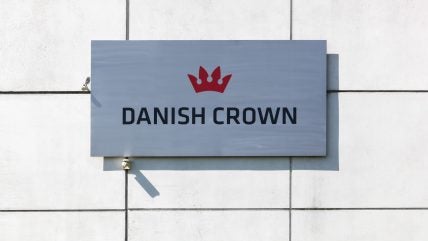
Pork processing giant Danish Crown misled consumers with one of its marketing claims about the environmental benefits of its products, a court has ruled.
In response, Danish Crown said “the intention with the campaign was never to mislead consumers”.

Discover B2B Marketing That Performs
Combine business intelligence and editorial excellence to reach engaged professionals across 36 leading media platforms.
The so-called ‘greenwashing’ case dates back to 2021 when the Danish Vegetarian Association and the Climate Movement in Denmark complained about Danish Crown marketing material from 2020. The campaign used the phrases “Danish pig is more climate-friendly than you think” and “climate-controlled pig”.
They claimed it had violated section five of the Danish Marketing Practices Act and called for the company to be prohibited from making marketing use of the said wordings in the future and to correct the latter phrase.
On Friday (1 March), Denmark’s Western High Court ruled the first phrase could not be considered misleading within the meaning of the Act. However, the court said the designation “climate-controlled pig” had “violated” the section in question and represented misleading marketing.
It therefore upheld the environmental groups’ claim in this regard.

US Tariffs are shifting - will you react or anticipate?
Don’t let policy changes catch you off guard. Stay proactive with real-time data and expert analysis.
By GlobalData“The High Court has emphasised that the Danish Vegetarian Association and the Climate Movement in Denmark have succeeded in claim two, which concerns one of the two statements that must be considered to have been of the greatest economic importance to Danish Crown and which also involved a large part of the evidence,” the judgment reads.
However, the claim for a ban on all future marketing use of the designation “climate-controlled pig” was dismissed.
The court ordered Danish Crown, one of Europe’s largest pork processors, to pay legal costs of DKr300,000 ($44,000) and to acknowledge it breached marketing laws.
Reacting to the ruling, Rune-Christoffer Dragsdahl, secretary general of the Danish Vegetarian Association, said: “We hope that a line will now be drawn in the sand so that food companies that produce very climate-damaging products do not claim that they are somehow good for the climate.”
He suggested the ruling has sent a signal to the country’s companies that “allegations about climate aspects of food must withstand a thorough review by the courts”.
In a statement sent to Just Food, a Danish Crown spokesperson said: “The High Court evaluated a specific campaign from three years ago and decided that while one statement is truthful, we have been too eager with another statement to communicate about our sustainability efforts.
“Of course, we regret the latter, as the intention with the campaign was never to mislead consumers, but rather to talk about all the measures we and our farmers take every single day to reduce the climate footprint of our products.
“This verdict is about a specific advertising campaign that is three and a half years old. We note that the decision does not prevent us as a company from talking about our climate actions and green initiatives moving forward, and that is crucial. Companies investing in the green transition must have the opportunity to create added value on their products by telling consumers about both the effort and the results.
“If we and other companies are to invest billions of dollars in the green transition, it is necessary that there is an opportunity to differentiate in relation to competitors by telling consumers about both initiatives and results.”
Danish Crown, which is controlled by more than 6,000 Danish farmers, has pledged to reduce greenhouse gas emissions by 50% by 2030 and to become “climate neutral” by 2050
Earlier this week, the New York Attorney General said it is suing Brazilian meat giant JBS, claiming it misled the public about its environmental impact.





